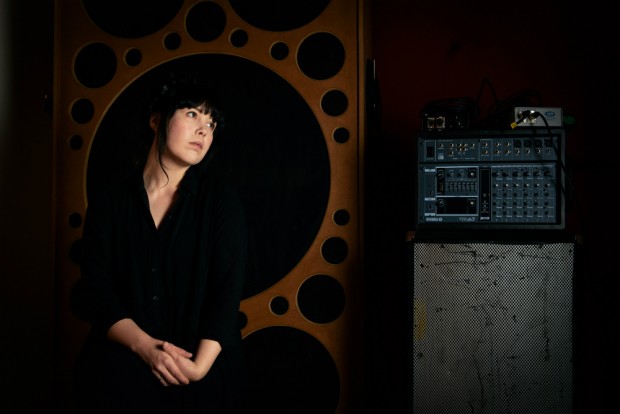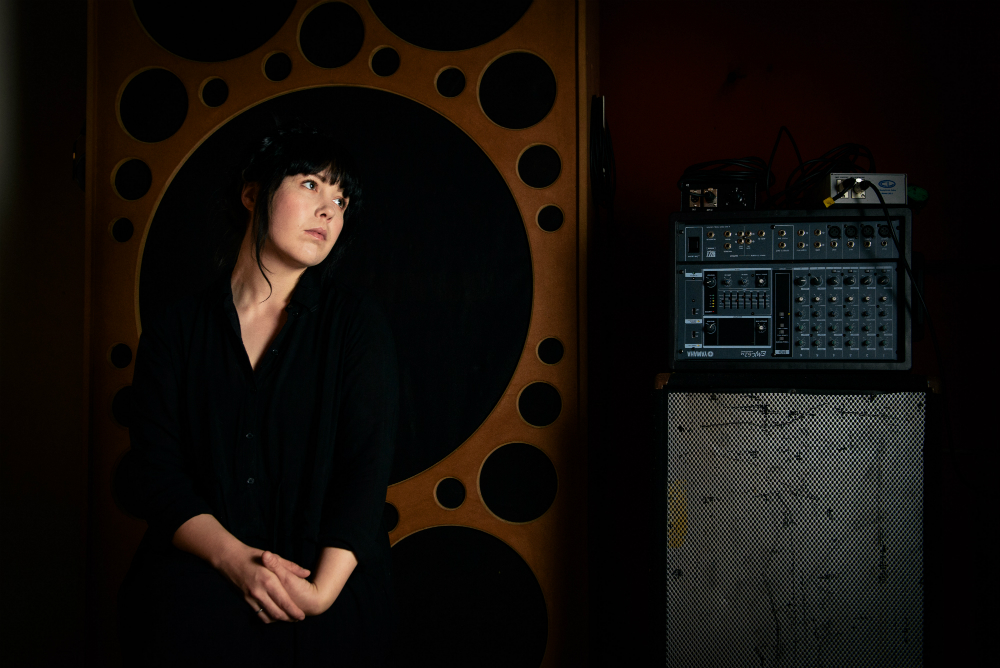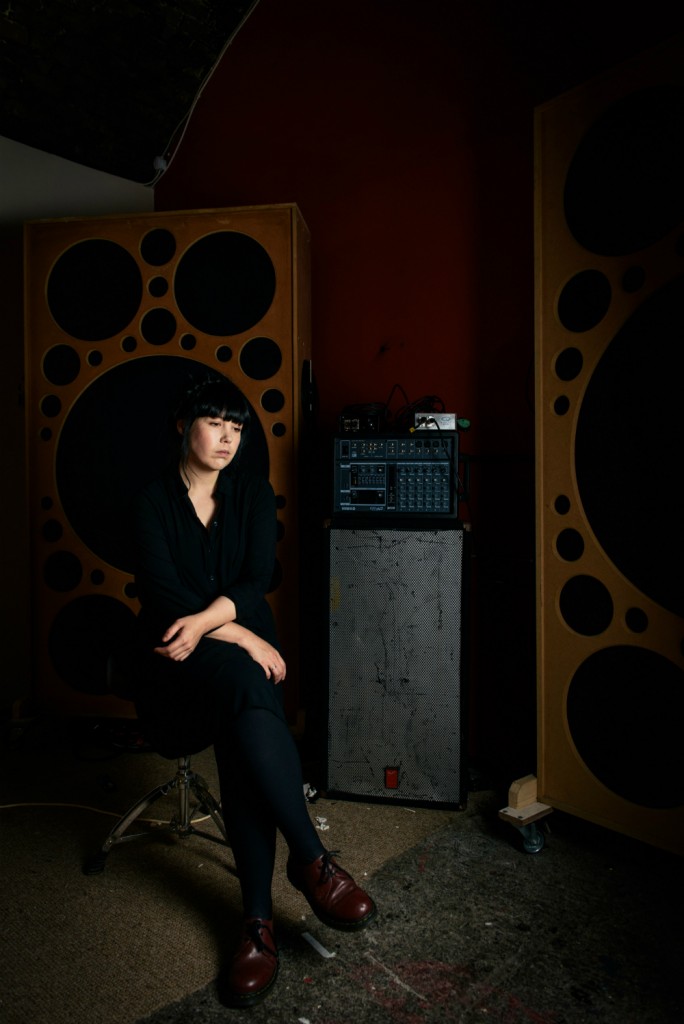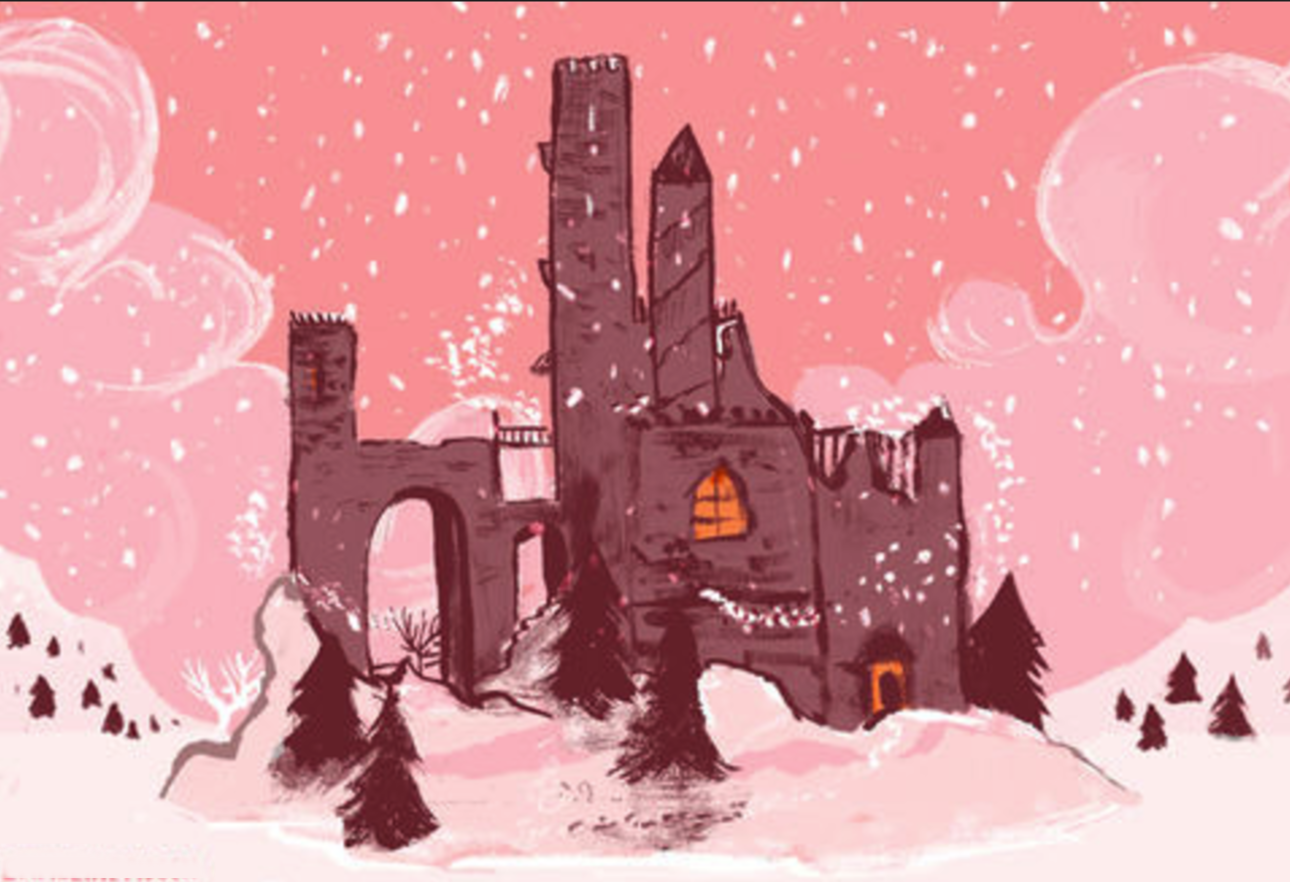Undeniably one of the finest Irish releases of the year, Salt has been widely eulogised for its intense depth of focus, as well as its distinctive compositional lure. Marking something of a promising reinvigoration for Katie Kim (AKA Katie Sullivan) in terms of direction, we caught up with the Waterford native to talk about the writing and recording of the album, getting back up on the stage, and more.
Words by Aaron Drain. Photos by Brian Mulligan.
While Cover & Flood dealt with similar themes, there has been a monumental shift in terms of mood and atmosphere with Salt – was this an intentional or more organic progression?
It was definitely more organic than contrived. I wanted to veer away from the more lo fidelity approaches I had taken previously and try my hand at something a little more sophisticated, but it was really a case of seeing how it progressed as we (myself and John Murphy) went along.
The music itself is so beautifully orchestral, shifting and growing all the time. Do you have a starting point for building arrangements, or is there an improvisational element to your composing?
So this ties into my previous answer in so much as seeing how it develops over the recording process. I always have grandiose arrangements playing in my head when recording but it’s difficult to achieve when I’m recording alone with the software I have and in my particular surroundings. I knew I couldn’t afford an orchestra! But I sort of fell in love with the synthetic sound I was getting from the strings that I was playing on various synths or keyboards. They took on their own life and charm the more time I spent with them so I was almost happy that we didn’t have the luxury of real strings in the end. With vocals, it’s always difficult to tell myself when to stop because it’s the most enjoyable element of the recording process for me so I tend to overboard and then have to strip back. Or not in most cases.
You’ve lent your hand to composing for film, is this a pursuit you keep separate to your personal projects? Or is crossover the nature of the beast?
Whether I’m recording an album or working with someone else or composing something for film, it doesn’t make a difference to me, it’s all a creative undertaking. I would love more than anything to do more soundtrack work. It’s just as cathartic as producing an album or personal piece of work, but for me the visual element adds depth to an idea you’re experimenting with. For instance, if I played three keys of the piano for 15 minutes on stage in front of an audience, it wouldn’t have quite the same effect if you were looking at an image on a screen to accompany those three notes and make of those three notes and images what you will. It was lots of fun and really fascinating when we were laying out initial ideas for La Coquille et le Clergyman. We would watch her film with various pieces of music over it. Electronic, Folk, Drone, Pop etc and it would completely alter your view of what the scene was saying. So we realised we had a part to play in this particular public viewing of the film and what story we wanted to tell with our soundtrack.
Can you tell us a little bit about your lyric writing process for Salt? Did you approach the album differently? On the surface, it feels much grander – almost philosophical at times.
I don’t feel like I did. But my songwriting process has more of a stream of consciousness approach than anything else. I write music first, then lyrics, sometimes both at the same time, but it’s all nonsense until I have a finished song and then look back and make sense of what it eventually is. It’s the only way I know how to write and it’s actually decoded a lot of confusing things that have happened in my life. Also, I think I’m getting a bit older and darker times in your life gather more moss as you go forward, so maybe because of this my writing has become slightly more philosophical, I don’t really know.
How do you feel about labels like alt-folk or alt-pop? Are you comfortable with generic terms like these applied to your music, or do you think that they miss the point of what you’re trying to get across?
It makes absolutely no difference to me. People can call it what they want.
There have been a couple of shows since the album came out – do you find it difficult performing such carefully arranged compositions in environments that perhaps don’t cater to the baroque, somewhat theatrical nature of your recorded music?
Before my show with The Crash Ensemble in Bandon, I hadn’t played live for a year. I had a bad show where technically things went wrong and I believed it was going to be my final show for a long, long time. Then a year passed and I felt totally and utterly void. Things weren’t good at all and I realised that had a lot to do with me not playing or writing. Things are still a bit suspicious, but if not for writing and recording I wouldn’t have a chance. So I told myself to get up and give it another go when the album was coming out. A friend talked to me about my occasional stage fright and general distaste for all things live/audience based and he simply told me to keep it as simple as I possibly could. I thought this was the brightest advice anyone had ever given me up to this point, so that’s what I did and that’s what I’m doing. I play live the way I’d play if I were writing at home on my piano in my bedroom and I hope that’s enough.
Finally, looking back, if there was one thing you could change about the album, what would it be?
It would have been nice not to have released it independently this time.
Buy Salt via Bandcamp here







